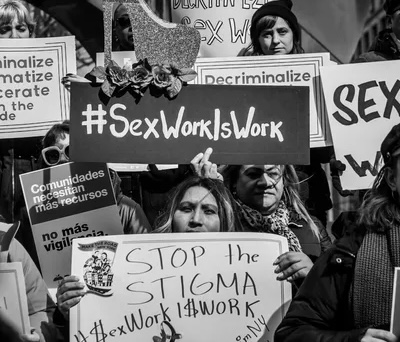South Africa is moving closer to a landmark reform of its laws on adult consensual sex work. In a pivotal development for human rights, public health and labour advocacy groups, the country is now deliberating legislation that would decriminalise sex work—making it no longer a criminal offence for consenting adults to buy or sell sexual services.
Why the Change Is Being Proposed
Under current law, the sale and purchase of sexual services by consenting adults are illegal in South Africa. Activists estimate there are as many as 150,000 sex workers in the country—most of them women—and claim that criminalisation fuels violence, police exploitation, barriers to healthcare and stigma.
The Sex Workers Education and Advocacy Taskforce (SWEAT) and other networks argue that decriminalisation would reduce harm rather than promote exploitation. “Sex work is work,” says one of the voices advocating for reform.
Also, South Africa holds one of the worst HIV epidemics globally; advocates say criminal laws around sex work obstruct access to prevention and treatment for this key population.
Read Also: Mali Fires Back: New $10,000 Visa Bond for US Travelers
The Legal Challenge and Reform Bill
In 2024, a major legal challenge was launched by SWEAT and a Cape Town sex worker, SH, joined by multiple NGOs seeking to have key provisions of the Sexual Offences Act and related statutes declared unconstitutional.
Simultaneously, a draft Bill to decriminalise sex work was published in December 2022, though it remains stalled amid debates over how much to regulate sex work even after decriminalisation.
The Western Cape High Court has accepted several advocacy groups as amici curiae in the case scheduled for May 2026. The National Prosecuting Authority issued a directive that sex workers will not be prosecuted while the court process proceeds.
Supporters vs Opponents
Supporters argue that decriminalisation would:
- remove the threat of arrest and police harassment for sex workers, enabling them to report crimes, access healthcare and safer working conditions.
- reduce stigma and make the industry subject to labour regulations, health protections and oversight.
Opponents—including some religious and anti-trafficking groups—contend that legalising or decriminalising sex work would normalise exploitation, increase sex-trafficking and degrade human dignity.
What’s At Stake
The reform has wide-ranging implications for public health, women’s rights, labour law and policing in South Africa. If fully decriminalised, sex work would move from the margins to a legally recognised form of labour and the state would need to tackle regulation, licensing and workplace safety.
However, even if decriminalisation is achieved, strong regulation and social protections will be required to avoid unintended consequences. Human rights groups emphasise that decriminalisation alone is not sufficient without robust labour, health and safety frameworks.
Next Steps
The justice ministry has indicated progress, but parliamentary approval and a fully legislated framework remain pending. Many anticipate a major decision by 2026, once the High Court case is concluded. Meanwhile, prosecution of sex workers has been temporarily paused.
As South Africa charts this new course, the world watches how one of Africa’s most progressive constitutions might reshape an industry long overlooked — or criminalised — and how rights, health and dignity for sex workers may be affirmed in law.

